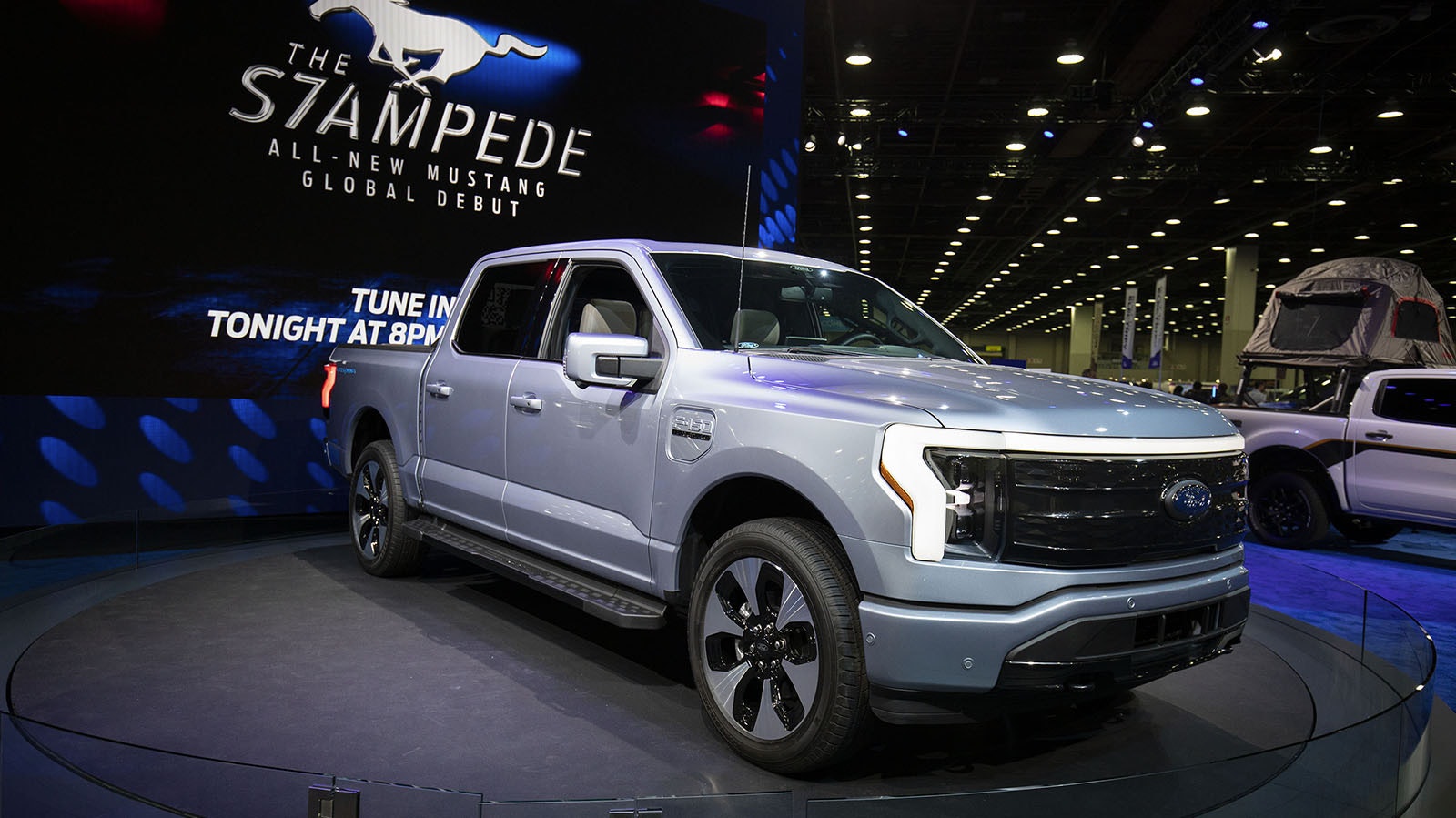The American Automobile Association ran a test on the Ford F-150 Lightning — the electric version of Ford’s popular pickup — to see how much carrying loads would impact range.
The results were announced this week. When loaded with 1,400 pounds of sandbags, which is 110 pounds short of its maximum rated capacity, the range of the truck dropped from 278 miles to 210 miles.
The AAA test highlights a flaw in the Biden administration’s goal of forcing as many people as possible into electric vehicles (EV) by 2032. Consumers won’t often find their limitations appealing.
EV Mandate
In April, the Biden administration’s EPA announced proposed rules that would require that two-thirds of new passenger cars, as well as 25% of heavy trucks, sold in the U.S. are all electric.
Buick, Ford and General Motors have all announced plans to go to an all-electric lineup within the next couple decades, but the EPA’s proposal may be going a bit too fast for them.
The Alliance for Automotive Innovation, which represents 42 car companies — including Ford and General Motors — submitted comments to the agency that call the EPA’s targets “neither reasonable nor achievable in the timeframe provided.”
The alliance said the rules assume an abundance of critical mineral production, that apartments and residential street parking will have enough charging availability, and that the U.S. grid will be able to handle this rapid increase in electricity demand, along with other short-sighted assumptions.
Highly Regulated
The pushback seems at odds with the industry’s commitment to electric lines, but it may not signal any significant resistance to the Biden administration’s goal of eliminating most gas-powered vehicles.
Vince Bodiford, publisher of TheWeekendDrive.com and a Cheyenne resident, told Cowboy State Daily the auto manufacturers are in a tough spot, which makes them often beholden to the whims of the federal government.
“It’s a highly regulated industry,” Bodiford said.
Besides fuel efficiency standards, these rules include tire regulations and safety standards. On top of that, states have their own regulations. If they’re publicly traded companies, they also have the U.S. Securities and Exchange Commission looking over their shoulder.
“If you think about all of the different regulatory agencies that the government has at their disposal to influence the automakers, it’s significant — everything from labor to supply,” Bodiford said. “The industry has to go with the flow of the regulatory environment.”
Bodiford said the industry is very skilled at retooling itself rapidly, so it’s quite possible that it can convert to all-electric vehicle production quickly. In World War II, the major car companies rapidly retooled themselves from producing automobiles to producing tanks.
“Never underestimate the industrial might of the automotive industry,” Bodiford said.
Of course, carmakers can produce all the electric vehicles they want, but there’s no way for the federal government to mandate that people buy them.
If consumer demand doesn’t align with the federal government’s desires, Bodiford said, all these electric vehicles produced will first go to government fleets, which can be mandated to buy them. Rental and corporate fleets will buy them for pennies on the dollar.
Meanwhile, as the supply of gas-powered vehicles dwindles, their prices will skyrocket.
Exceeding Authority
The Institute For Energy Research, a nonprofit, free-market energy think tank, also submitted comments to the EPA questioning the legality of the proposed rules.
“This rule is a de facto electric vehicle mandate,” Kenny Stein, vice president of policy for IER, said in a statement.
The agency’s mandate from Congress, IER argues, is to reduce certain pollutants from vehicles, not to pick what vehicles can be sold. Should the rules be made final, it would exceed the agency’s congressional authority.
By asserting this power to force a transition, the agency is going against Supreme Court precedent. Most recently, in West Virginia v. EPA, the high court concluded that, by trying to force a shift from coal to natural gas or renewable electricity generation, it was claiming a new authority beyond just regulating carbon dioxide emissions.
“Absent express authorization from Congress, EPA cannot claim this power to shift the motor vehicle industry from internal combustion-powered to electric-powered engines,” the IER argued.
Voter Appeals
Alex Stevens, manager of policy and communications for IER, told Cowboy State Daily that the administration isn’t concerned with whether or not the rules will pass legal muster. President Joe Biden is just playing to his base.
The Supreme Court also shot down Biden’s plan to forgive student loans, but Biden still wins support for young voters who don’t want to pay back their loans. The same is true for electric vehicle mandates.
“With energy policy rules, especially the EPA, it will take years for these rules to be struck down in court. In the interim, a huge amount of damage can be done,” Stevens said.
The Supreme Court struck down parts of the EPA’s Obama-era Mercury and Air Toxics Standards rule, but before the decision was made, many plants had invested heavily in compliance.
Stevens agreed the auto manufacturers are beholden to the federal government, and they will try their best to comply, long before any legal challenges are decided.
“It takes a lot of guts to hold out when you are potentially gambling your company,” Stevens said.





